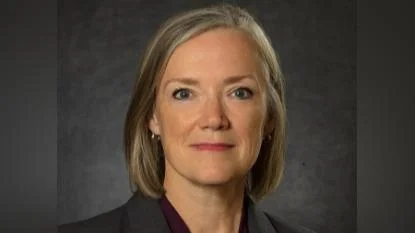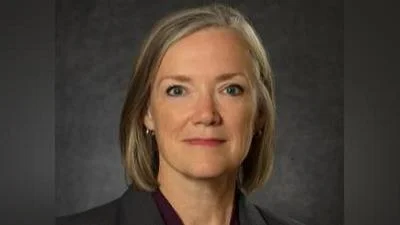U.S. Attorney Teresa A. Moore | US Attorney - Western District of Missouri
U.S. Attorney Teresa A. Moore | US Attorney - Western District of Missouri
KANSAS CITY, Mo. – U.S. Attorney Teresa Moore joined national, state, and local leaders today in recognizing World Elder Abuse Awareness Day on Saturday, June 15.
Since 2006, World Elder Abuse Awareness Day has been commemorated to promote awareness and increase understanding of the many forms of elder abuse as well as the resources available to those at risk.
“One in ten people over the age of 60 has experienced some form of elder abuse,” Moore said. “An estimated $28.3 billion is lost to elder fraud scams each year. My office and the Department of Justice are committed to prosecuting those who abuse the elderly, including financial fraud or other forms of exploitation.”
Elder abuse is an act that knowingly, intentionally, or negligently causes or creates a serious risk of harm to an older person by a family member, caregiver, or other person in a trust relationship. Such harm may be financial, physical, sexual, or psychological.
For example, co-defendants Morgan Armstrong and Lance Becker will be sentenced this summer for stealing Social Security checks from residents of an assisted living facility in Platte City, Mo.
In another case, defendant Henry Asomani was sentenced to 10 years in federal prison for his role in a romance fraud conspiracy that stole over $3 million from more than a dozen victims across the United States. Some victims lost their retirement savings or were forced to declare bankruptcy. Highlighting the partnership between law enforcement and the public, Moore emphasized the importance of awareness and education.
The Justice Department maintains a variety of programs and initiatives to combat elder abuse.
The Transnational Elder Fraud Task Force marshals federal and state agencies working collaboratively to investigate and prosecute foreign-based schemes that target older Americans. In addition to aggressively investigating the individuals, organizations, and networks responsible for these crimes, this initiative provides the public with information to guard against both traditional scams like tech support fraud as well as trending schemes such as romance scams.
Using one scam to perpetrate or conceal another, some fraudsters rely on money mules to move the proceeds of their illegal activity. Preying on the goodwill or financial vulnerability of their targets, scammers recruit people—many times older victims—to participate in schemes to move money in ways that avoid notice. The Money Mule Initiative identifies and addresses money mule activity to disrupt these fraud schemes and helps people recognize and avoid participation in perpetuating fraud.
To help older individuals and their families identify and avoid fraudulent activity, the Justice Department provides Senior Scam Alerts with information about tactics used in specific schemes. For example:
- In Social Security Administration Impostor schemes scammers impersonate government administrators falsely reporting suspicious activity to request that victims provide their Social Security number for confirmation.
- In Tech Support scams fraudsters contact victims sometimes through internet pop-up messages warning about non-existent computer problems asking that they give remote access to their computer then demand large sums for unnecessary services.
- In Lottery scams telemarketers falsely notify victims that they have won a sweepstakes telling them they must first pay fees for shipping insurance customs duties or taxes before claiming prizes.
To learn more about the department’s elder justice efforts please visit the Elder Justice Initiative website at www.justice.gov/elderjustice.
To report elder fraud contact the dedicated National Elder Fraud Hotline at 1-833-FRAUD-11 (1-833-372-8311) or visit the FBI’s IC3 Elder Fraud Complaint Center at IC3.gov.
___






 Alerts Sign-up
Alerts Sign-up